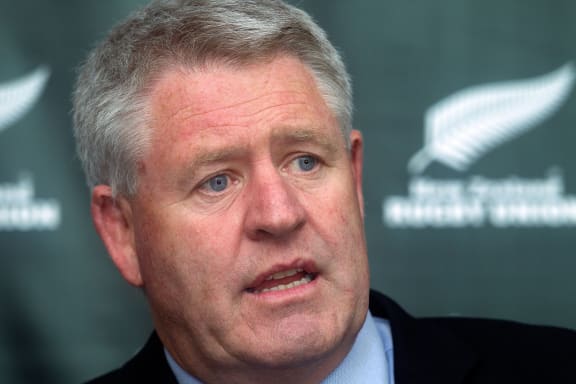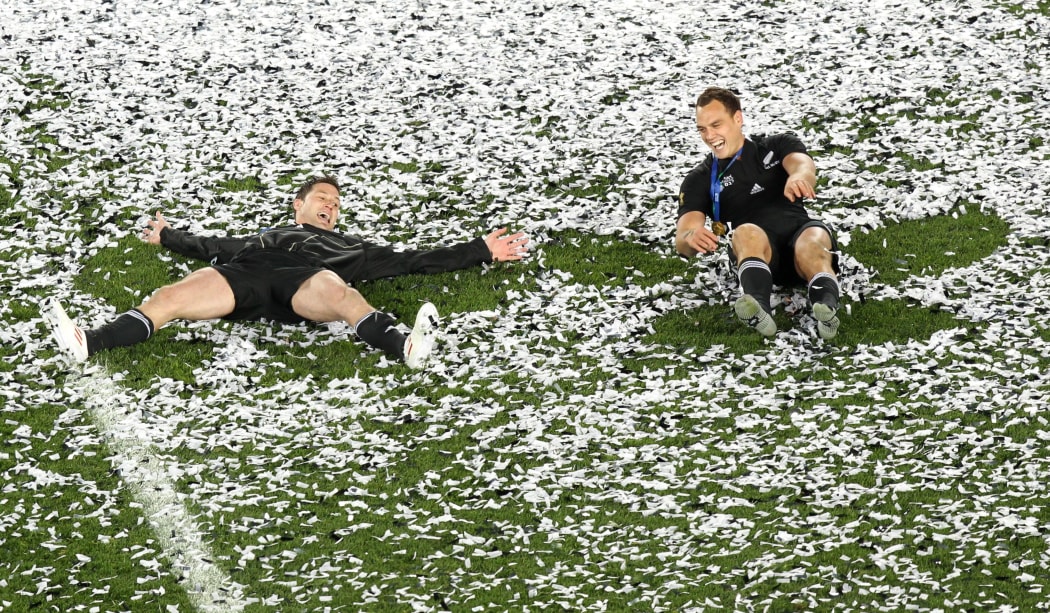The New Zealand Rugby Union has confirmed that All Blacks Cory Jane and Israel Dagg took sleeping pills with alcohol during a night out in the 2011 World Cup.
The combination can produce an amphetamine-like high, without falling foul of anti-doping rules.
The NZRU said it is not considering testing for or banning prescription sleeping pills, as league is doing in Australia and New Zealand.

NZRU Chief Executive Steve Tew Photo: AFP
NZRU chief executive Steve Tew told reporters on Thursday that Dagg and Jane had been disciplined and would not be punished further.
"It was dealt with we think in the right way and the right context. And this issue that we're dealing with now, if you like, wasn't an issue then. And nor have we seen any other issues between now and the Rugby League World Cup.
"Sleeping pills came up at that time - we didn't have a major red flag about it, particularly. They made some poor decisions, they breached team protocols, they were dealt with and we got on with the World Cup campaign."
Reports at the time suggested that Dagg and Jane went on a drinking binge at a Takapuna bar less than 72 hours before the quarterfinal against Argentina. Radio New Zealand understands there was pressure from within the team for them to be dropped. However, they weren't the only players involved.
Players apparently stockpiled sleeping pills from overseas trips and would compete to see who could stay awake the longest. Radio New Zealand has been told that recent All Blacks have experimented with the sleeping pill cocktails and this is also prevalent at Super Rugby level.
The practice was revealed on Wednesday by Warriors' doctor John Mayhew, who says there's anecdotal evidence of players taking the combination because it does not contravene World Anti-Doping Agency rules.
But Steve Tew says it is impossible for players to stockpile prescription sleeping pills, as drugs are heavily controlled by the team's doctors.
"We've got highly trained, very experienced medical practitioners, all of whom are licensed and live by a very strong code of ethics. I can tell you from first-hand experience that, as far as sleeping pills are concerned, they are administered on an as needs and a very scarce basis."
Mr Tew says the player's misuse of the drugs wasn't covered up by administrators as it was believed to be an isolated incident.

The players celebrate winning the Rugby World Cup at Eden Park. Photo: AFP
Compulsory testing opposed
The New Zealand Rugby Union said on Wednesday it is not considering testing or banning prescription sleeping pills. Chief executive Steve Tew says sleeping pills are an important part of player management and as games are played in different time zones around the world, some players need help getting enough sleep.
The New Zealand Professional Rugby Players Association is also against compulsory testing of players for prescription drugs. Executive director Rob Nichol believes there have only been isolated cases in rugby and there isn't a widespread problem.
Mr Nichol says two years ago, players were asked if there was an issue with prescription medications and while there was no sign of sleeping pill abuse, players were concerned about the attitude towards prescription medications.
Mr Nichol says some players have tried the cocktail of drugs and drink, realised the problems involved and stopped. He doesn't think a drugs testing policy is needed straight away, instead he would prefer an approach of education and awareness.
Mr Nichol says if there are concerns about an athlete, that individual should be confronted only.
Wider issue
But Warriors doctor John Mayhew says anecdotal evidence shows the problem is widespread across codes and the National Rugby League has responded with tests to gauge how big the issue is.
Former Warriors coach Tony Kemp told Radio New Zealand's Morning Report programme on Thursday it is much wider issue than rugby league, nor are just one or two players involved.
"I know through my circles that if you look at the Olympics and the Australian swimming team, it was prevalent the taking of sleeping tablets and energy drinks and it's a common use of illegal substances to take the edge off things."
He says the NRL's offer of counselling to players who test positive to sleeping pills is a good start.
Earlier in March, New Zealand Rugby Union general manager of professional rugby Neil Sorensen announced it was establishing an integrity unit. He said its brief would include uncovering the level of abuse.
Former Kiwis player Dean Lonergan said top level footballers need protecting from themselves if the practice turns out to be as common as is being claimed.
Lonergan says if the practice is happening in league, it is very likely to be happening in top level sport elsewhere. "When they're between the ages of 18 and 36 they become a little bit famous; have a lot of money and stick some alcohol down and all of a sudden are six feet tall and bullet proof and they actually need a bit of saving from themselves.
He says players are very quick to pass on ways of getting a high that don't contravene the rules.
Dangerous practice - professor
A drug and alcohol addiction expert says top athletes combining prescription sleeping pills with alcohol and energy drinks are taking a dangerous risk.
Associate Professor Simon Adamson from the National Addiction Centre, says the combination dramatically amplifies the effect of alcohol, causes disinhibition and aggressive behaviour, and could easily lead to overdoses. He says it's unlikely to enhance onfield performance.

